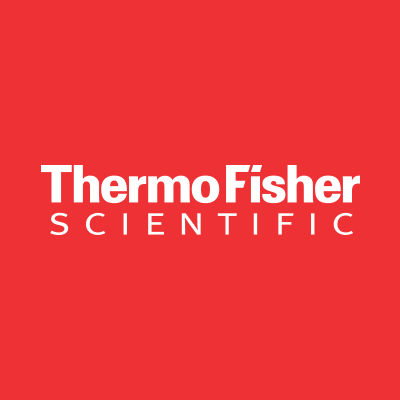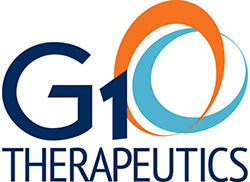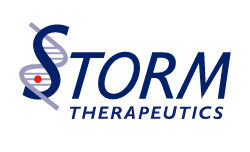预约演示
更新于:2026-02-02

Thermo Fisher Scientific, Inc.
更新于:2026-02-02
概览
标签
肿瘤
泌尿生殖系统疾病
感染
双特异性T细胞结合器
小分子化药
诊断用放射药物
疾病领域得分
一眼洞穿机构专注的疾病领域
暂无数据
技术平台
公司药物应用最多的技术
暂无数据
靶点
公司最常开发的靶点
暂无数据
| 排名前五的药物类型 | 数量 |
|---|---|
| 小分子化药 | 9 |
| 单克隆抗体 | 2 |
| ASO | 1 |
| 合成多肽 | 1 |
| 双特异性T细胞结合器 | 1 |
关联
19
项与 Thermo Fisher Scientific, Inc. 相关的药物作用机制 HIV-1 capsid抑制剂 |
在研适应症 |
非在研适应症- |
最高研发阶段批准上市 |
首次获批国家/地区 欧盟 [+3] |
首次获批日期2022-08-17 |
作用机制 CDK4抑制剂 [+1] |
最高研发阶段批准上市 |
首次获批国家/地区 美国 |
首次获批日期2021-02-12 |
377
项与 Thermo Fisher Scientific, Inc. 相关的临床试验NCT07015996
Efficacy of Tezepelumab in Peanut Oral Immunotherapy: a Double-Blind, Randomized, Placebo-Controlled Trial
The proposed study is a proof-of-concept Phase 2, double-blind, randomized placebo-controlled clinical trial evaluating the safety and efficacy of tezepelumab and peanut Oral Immunotherapy (OIT) for the treatment of peanut allergy. Study participation is divided into 3 periods: (i) a monotherapy period comprised of injections of either Tezepelumab or placebo from week 0 to week 8, (ii) followed by a combination therapy period comprised of 56 weeks during which peanut OIT is built up and maintained, and (iii) a treatment withdrawal period comprised of 12 weeks. This study will enroll 62 peanut-allergic individuals from 12 to 55 years of age who experience dose-limiting symptoms to <=100 mg of peanut protein in a single dose (<= 144 mg cumulative dose) as assessed by DBPCFC.
The primary objective is to determine whether 56 weeks of tezepelumab plus peanut OIT as compared to 56 weeks of placebo plus peanut OIT induces sustained unresponsiveness to peanut 12 weeks after stopping combination therapy.
The primary objective is to determine whether 56 weeks of tezepelumab plus peanut OIT as compared to 56 weeks of placebo plus peanut OIT induces sustained unresponsiveness to peanut 12 weeks after stopping combination therapy.
开始日期2026-02-18 |
NCT06594068
PRIMULA Lac (Prospective Registry Investigating Maternal, Infant, and Lactation Outcomes in Anifrolumab Users): The AstraZeneca Lactation Study for Anifrolumab
Prospective Registry Investigating Maternal, Infant, and Lactation Outcomes in Anifrolumab Users (PRIMULA Lac) is a Post Marketing Requirements (PMR) study designed to fulfill the FDA post-marketing requirements. The study will collect data about the presence of anifrolumab in human breast milk and serum (maternal and infant) among lactating individuals who receive anifrolumab therapeutically.
开始日期2026-01-30 |
申办/合作机构  AstraZeneca PLC AstraZeneca PLC [+1] |
ISRCTN56605614
An open-label, single oral dose, randomized, two-way crossover study to assess the relative bioavailability of two oral formulations of STC-15 and evaluate the effect of food on the pharmacokinetics of a single dose of STC-15 tablet in healthy participants
开始日期2025-12-09 |
申办/合作机构 |
100 项与 Thermo Fisher Scientific, Inc. 相关的临床结果
登录后查看更多信息
0 项与 Thermo Fisher Scientific, Inc. 相关的专利(医药)
登录后查看更多信息
3,961
项与 Thermo Fisher Scientific, Inc. 相关的文献(医药)2026-01-13·ANALYTICAL CHEMISTRY
Coupling Liquid Chromatography to Orbitrap Isotope Ratio Mass Spectrometry: Overcoming Isotope Effects of Chromatography and Amount-Dependency by Peak Homogenization
Article
作者: Canavan, Aoife ; Erhardt, Andrea M. ; Kuhlbusch, Nils ; Al-Ghoul, Habib ; Elsner, Martin ; Prechtl, Leonhard
Electrospray ionization Orbitrap mass spectrometry (ESI-Orbitrap-MS) has recently proven to be a powerful tool for compound- and position-specific stable isotope analysis, targeting isotopologues of multiple elements (H, C, N, O, S) in polar analytes. However, studies have so far mainly focused on pure analyte solutions via direct infusion. Here, we present the online coupling of liquid chromatography (LC) to ESI-Orbitrap-MS for stable isotope analysis of sulfamethoxazole (SMX), a synthetic antimicrobial, used as a model compound. Our study explored the fidelity of isotope values with two strategies for capturing and broadening chromatographic peaks after LC. When capturing the target analyte in a capillary (0.7 mm inner diameter), peak shape was retained, resulting in systematic deviations in isotope values caused by isotope effects from chromatography of up to 70‰ and amount-dependency of up to 65‰. A dynamic mixing chamber was used to homogenize the target analyte upon elution, removing these deviations and resulting in stable carbon, nitrogen, and sulfur isotopologue ratios in various fragments of sulfamethoxazole across the chromatographic peak. Comparison with data from conventional magnetic sector isotope ratio mass spectrometry successfully calibrated the setup for carbon and sulfur isotope ratio analysis. This resulted in a precision for δ13C within the isoxazole moiety from SMX of 1.5‰ (95% confidence intervals CIs derived from uncertainties of sample (n = 4) and reference (n = 5)), and for δ34S in the SO2 fragment of 0.9‰ (95% CI, derived again from uncertainties of sample (n = 4) and reference (n = 5)). This work paves the way for the online coupling of LC to ESI-Orbitrap-MS in future compound- and position-specific stable isotope analyses across various research fields.
2026-01-07·JOURNAL OF THE AMERICAN SOCIETY FOR MASS SPECTROMETRY
Development and Optimization of an Electrospray Diverter for Reduced Background Signal in Ambient Ionization Sources
Article
作者: Chang-Yen, David ; Radosevich, Andrew J. ; Wouters, Eloy R. ; Trumbull, Jonathan D. ; Eisenberg, Seth M. ; Muddiman, David C. ; Joignant, Alena N. ; Hernandez, David ; Williams, Jon D.
A common issue in pulsed ambient ionization sources is the presence of background ions, which can cause ionization suppression and negatively influence downstream statistical analysis. Infrared matrix-assisted laser desorption electrospray ionization (IR-MALDESI) is an ionization technique commonly used for mass spectrometry imaging and high throughput screening, both of which highly benefit from reduced background signals. An electrospray diverter was developed to act as an ion shutter, preventing ions from entering the mass spectrometer when a sample related signal was not present. After timing optimization for both liquid based screening and tissue imaging, reductions in background signal up to 4-fold were observed, as well as increases in sample related signal up to 11-fold. In all cases, a relative increase in the sample related signal was observed, and no negative impacts on sample related data were detected.
2026-01-01·AMERICAN JOURNAL OF TRANSPLANTATION
Improving the histologic detection of donor-specific antibody-negative antibody-mediated rejection in kidney transplants
Article
作者: Kumar, Dhiren ; Dęborska-Materkowska, Dominika ; Prewett, Adam ; Gryczman, Marta ; Mackova, Martina ; Hruba, Petra ; Viklicky, Ondrej ; Baliga, Rajendra ; Hidalgo, Luis G ; Konopa, Joanna ; Demko, Zachary ; Myślak, Marek ; Gauthier, Philippe ; Gupta, Gaurav ; Sikosana, Majid L N ; Brennan, Daniel ; Pączek, Leszek ; Smykal-Jankowiak, Katarzyna ; Slatinská, Janka ; Gill, Jagbir ; Lee, Michelle ; Mazurkiewicz, Joanna ; Lowe, David ; Hughes, Peter ; Domański, Leszek ; Wiecek, Andrzej ; Bobba, Sindhura ; Fryc, Justyna ; Ciszek, Michał ; Bromberg, Jonathan ; Schachtner, Thomas ; Mueller, Thomas ; Shojai, Soroush ; Francis, Iman ; Banasik, Mirosław ; Kamal, Layla ; Kojc, Nika ; Vucur, Ksenija ; Weir, Matthew R ; Lan, James ; Perkowska-Ptasińska, Agnieszka ; Debska-Ślizień, Alicja ; Jittirat, Arskarapurk ; Patel, Anita ; Glyda, Maciej ; Gill, John ; Arnol, Miha ; Moinuddin, Irfan ; Costa, Nadiesda ; Fatica, Richard ; Zaky, Ziad ; Gourishankar, Sita ; Poggio, Emilio ; Madill-Thomsen, Katelynn S ; Blosser, Christopher D ; Haler, Željka Veceric ; Budde, Klemens ; Halloran, Philip F ; Anand, Sanjiv ; Reeve, Jeff ; Miglinas, Marius ; Alhamad, Tarek ; Piecha, Grzegorz ; Naumnik, Beata ; Jurekovic, Zeljka ; Chow, Kevin ; Regele, Heinz ; Chamienia, Andrzej ; Bloudíčkova, Silvie Rajnochová ; Kant, Sam ; Kamel, Mahmoud
Emerging treatments for antibody-mediated rejection (ABMR, NEJM391 (2):122-132) have increased the importance of ABMR detection when donor-specific antibody (DSA) is negative. We addressed this issue in the Trifecta-Kidney study (ClinicalTrials.gov #NCT04239703) using 3 centralized tests in 690 kidney transplant biopsies: DSA (One Lambda Inc), blood donor-derived cell-free DNA (dd-cfDNA, Prospera™ test, Natera, Inc), and molecular biopsy assessment (MMDx). We used an "AutoBanff 2022" algorithm to model the impact of alternative DSA interpretations on the histologic diagnosis of DSA-negative ABMR following Banff guidelines, including agreement with dd-cfDNA and molecular ABMR. Lowering MFI cutoffs for DSA positivity did not improve the detection of DSA-negative ABMR. However, simply calling all DSA as positive allowed the Banff 2022 guidelines to identify 46% more ABMR cases with no measurable conventional DSA, and per net reclassification improvement increased agreement between histologic diagnoses and both dd-cfDNA (P = 7.72E-7) and molecular ABMR (P = 7.69E-7). New ABMR cases were as strongly positive for dd-cfDNA and molecular ABMR as those found using the conventional DSA interpretation. A validation set analysis using INTERCOMEX study data (ClinicalTrials.gov NCT#01299168) confirmed these findings and found that the new DSA-negative ABMR cases identified by calling all DSA-positive had the same risk for graft loss as those found with conventional DSA interpretation. Trifecta-Kidney Study ClinicalTrials.gov #NCT04239703.
3,012
项与 Thermo Fisher Scientific, Inc. 相关的新闻(医药)2026-02-01
·循因缉药
全球视野,深度视角
各位亲爱的股东,大家早上好中午好晚上好!
朋友们,华大智造要收购序风和时空这事大家都看到了吧?
好,我们蹭蹭热点,跟大家一起聊聊这档子事。
先省流:
第一,花了多少钱,咱们一图看懂。
3.66亿拿下两家公司100%股权,1.3亿增资我待会说。
第二,买贵了吗?以2024年收入为基准粗略推算大约3.49倍PS,不仅不贵,用“便宜”来形容都不过分。
第三,时机对吗?大环境紧张,这时候收购才有机会占便宜。
第四,为什么要买?“华丽转身”全球独一份,一举活成老大哥Illumina梦中的样子。
晴天修屋顶,集中火力,战未来。
省流结束,咱们仔细看下华大智造这场爽翻天的“华丽转身”。
PART.01
“华丽转身”
先看公告,比较复杂对吧?我们降维简化下,就一件事:
华大智造将花费3.66亿元拿下序风(纳米孔)和三箭齐发(时空组学)全部股权。
我知道你有很多问题,我先说结论:
第一,现在是收购这两家企业、打造多组学一站式解决方案的绝佳窗口期;
第二,华大智造获得的资产和知识产权是Illumina梦寐以求的;
第三,单纯从性价比来看,两家收购价并不高,华大智造花3.66亿人民币买了两家,Illumina花3.5亿美元买了一家,这性价比很明显了。
我想说的是,华大智造终于放开了手脚开始并购了。
虽然此前通过经销合作可以规避整合所需要的时间等问题,但是...没听说谁通过做经销商做成了赛默飞吧?
所以,要成为中国的赛默飞,就得学会并购。
事实上,赛默飞(Thermo Fisher)本身就是Thermo和Fisher两家公司合并的。
而我们耳熟能详的Life、Affymetrix、Olink都是赛默飞收购来的。
好,接下来我们来详细看 “这次收购值么?为什么是现在收购?”这些问题以及我的答案。
我甚至可以说,并购后的智造就是老大哥Illumina梦中的样子。
PART.02
“梦中的婚礼”
我们先看看华大智造将变成什么样子:长短读长齐备,单细胞空间生物学俱全,覆盖从样本存储到报告全流程工具。
如图所示...
华大智造手里NGS测序仪、纳米孔测序仪、单细胞测序、空间生物学...全了。
关于纳米孔测序仪和空间生物学的这两位兄弟有什么“用”,咱们可以参考这两篇文章了解一二。
华大智造|脑机接口研究的基座还是藏不住了!
简单粗暴理解就是,华大智造=Illumina(市值221亿美元)+ONT(市值15亿英镑)+10x Genomics(市值26亿美元)。
就有种莫名的爽感...你懂我意思吧?
实际上,我们看到多组学价值已经凸显,华大智造此时出手的战略意义是要肯定的。
Ark Invest(方舟投资)已经将多组学技术连续3年列入其“Big Ideas”报告中,其重视程度可见一斑。
2024年,尽管空间生物学公司NanoString破产保护,依然吸引了业界巨头Bruker的注意,将其纳入麾下。
Oxford Nanopore早在2023年就与生物梅里埃联手进军纳米孔临床应用。
更是在今年宣布拿到CE和UKCA认证,推出IVD版纳米孔测序仪。
类似的例子我还能举出很多,纳米孔测序和空间生物学是未来的价值链关键构成部分。
这时候就有野生吴彦祖要问了,为什么Illumina不收购个长读长测序仪公司啊?是不想吗?
如图所示...Illumina表示并非不想...臣妾做不到啊...
那么把纳米孔和时空组学两块资产直接并进华大智造还有啥好处呢?
简单的说,有三点:
第一,战略同步。
可以统筹多组学各个模块的布局和节奏,避免某些领域出现短板,而其他的跑太快没有承接的情况。
第二,资源复用。
大家都知道,华大的纳米孔测序仪也在申请NMPA医疗器械认证,这方面华大智造是行家啊。并且在空间生物学领域,如果空间生物学要用到高分辨率成像(类10x的Xenium),那又可以复用华大智造的技术储备。
第三,破除壁垒。
以前:我跟老板汇报下,咱们再看看怎么做。
现在:咱们看看怎么做,再跟老板汇报下。
你看,这很重要吧。
PART.03
“兄弟,你好香”
我知道,在这个时间节点再收购两家尚未盈利的公司肯定会引起大家的疑问。
但是,当我盘完交易的价格后,释怀了。
这次给的价格相较于业界可比公司,不仅不算高,甚至可以说是性价比极高。
你比如:2024年4月17日,Bruker拿下破产保护中的NanoString就花了3.926亿美元,还不算后面跟10x Genomics和解“擦屁股”的钱。
生物梅里埃以每股238.08英镑的价格,获得了29025326股ONT股票,对价约7000万英镑,占ONT总股本的3.5%。
你看看,华大智造花这点钱到手俩核心技术和对应公司100%股权,真的太香了。。
咱们再看国内的例子:
安序源港股IPO交表的信息,其融资金额大约1.16亿美元,估值3.475亿美元,超24亿人民币。
齐碳仅C轮融资就拿了7个亿,总融资金额早就超了10亿人民币。
还是自己人对自己人最严格啊!
即便有人说...这俩货亏钱呢。
我们来看业绩补偿条款,
还不够的话再看分批付款条款:
好家伙,如果仔细想想业绩没完成不仅要补上缺口还收不到第二笔钱啊。
千防万防,兄弟也防...
另外,华大智造增资的1.3亿,其中1.2亿用获得了两家标的公司765项专利、知识产权等,原汤化原食...这也太香了。
所以,以华大智造的视角来看...
“兄弟你好香”
PART.04
最后
最后我们总结下,华大智造拿下纳米孔测序仪和空间生物学这两块资产正处于绝佳的窗口期,且,两家收购价并不高。
(摘自安序源招股说明书)
再说一个角度,安序源截至2025上半年研发投入就已经达到约3730万美元,约合2.6亿人民币。
而,时空和纳米孔最烧钱的时候已经过去,华大集团这是生米煮成熟饭了才送给华大智造。
华大智造以极低的代价获得了极具未来潜力的资产和知识产权,成为全球唯一能够全方位提供长短读长测序+空间生物学全流程解决方案的供应商。
想想Illumina当年还赔了华大智造3.25亿美元,PacBio也没弄到手~哇的一声哭了出来。
拿下纳米孔测序和时空组学的华大智造,不就是Illumina梦想中自己的样子吗?
试看今日之华大智造,产业链上下游齐备、收购花钱不多、能干的事不少,并且交易有托底,有业绩预期和补偿条款,还分批付款。
既要又要还要...
恰此时,我们认为,多组学很可能已经在爆发的前夜了:
战略窗口期稍纵即逝,追梦要趁早。
我想,如今的华大智造在美国方面持续打压下也是憋着一口气:作为中国生命科学的一根“独苗”,我就是要越来越强,我就是要继续开疆拓土!
经历过所谓断供、卡脖子的我们,深知这一切都将转化为我们战未来的底气!
Tags:#华大智造 #MGI #纳米孔测序 #空间生物学 #NGS #并购
END
各位股东看了么?赞了么?转发了么?别忘了点赞。谢谢!
所有内容均不作为投资建议,信息均来自公开资料,星球更新更快。
扫码加入星球!
循因缉药Elite
PS:风里雨里,老编等你~
近期原创:
终于!GRAIL多癌早筛产品提交FDA批准!
啊?赛默飞2025Q4营收近3年最高..但跌了
Danaher丹纳赫:中国2026更好!
消灭肿瘤,用药还是枪似乎都行...
普!大!喜!奔!Intellia基因编辑疗法NEX-z临床试验恢复!
相关资料:
注1:华大智造公告
并购一致性评价
2026-02-01
·艺药荟
元旦/春节[知识福利]—VIP资源请加入“艺药荟”知识星球。
经典阅读:
本文内容来自经典书籍《生物制药工艺:生产工艺开发、设计和实施》的第6.2章节,主要概括总结了生物制药哺乳动物宿主细胞系统的来源、特点和应用。
6.2.1 培养类型
动物细胞培养可以根据不同的培养类型进行划分,每种类型都有特定的特征,对生物制造商很重要。原代培养物源自正常动物组织,可以作为外植体培养,或者在酶消化后作为单细胞悬液培养。分离出的原代细胞可以有两种不同类型:贴壁细胞,需要附着在表面才能生长;悬浮细胞,在悬液中自由生长。贴壁细胞大多源自器官组织,它们在那里是固定的,并嵌入结缔组织中。悬浮细胞源自血液/血浆系统。当原代培养物进行传代培养(转移到装有新鲜营养物的新容器中)时,它就被称为细胞系。原代细胞系只能在体外维持有限的时间,在此期间,细胞通常保留体内细胞的大部分特征。在生物制药生产中,原代细胞系,例如鸡胚成纤维细胞,用于病毒疫苗生产。原代细胞系的一个新兴应用领域是细胞治疗。原代细胞系也广泛用于研究和发现应用以及生物测定。常见的原代细胞系包括角质形成细胞、黑素细胞、上皮细胞、成纤维细胞、内皮细胞、肌肉细胞、造血细胞和间充质干细胞。
正常细胞通常在失去增殖能力之前只能分裂有限的次数。然而,一些细胞通过称为转化的过程变得永生,这种转化可以自发发生,也可以通过化学或病毒诱导发生。当有限细胞系发生转化时,它就变成了连续细胞系。连续细胞系在转化过程中会失去许多其原有的体内特征,但它们将获得长期可用的好处。在文献中,连续细胞系大多仅被称为“细胞系”。连续细胞系可以作为单细胞或小的漂浮团块在悬液中生长,或者附着在表面生长。在大规模生物制造中,悬浮细胞系是首选,因为与贴壁细胞相比,它们的处理更方便,扩大培养也更容易。只要有可能,生产培养物就会适应悬浮生长。一般来说,连续细胞系的生长特性反映了其来源的组织。源自血液的细胞系倾向于在悬液中生长(例如源自小鼠骨髓瘤的NS0细胞),而源自实体组织的细胞倾向于贴壁生长。两种最常用的生产细胞系CHO和HEK293本质上是贴壁的,然而两者都有市售产品,可适应在无血清细胞培养基中悬浮生长。
6.2.2 非人类哺乳动物系统
中国仓鼠卵巢细胞(CHO)是动物细胞重组蛋白生产的主要体系。2015年,在所有由动物细胞生产并获得美国食品药品监督管理局(FDA)/欧洲药品管理局(EMA)批准的重组产品中,超过半数(55%)是由CHO细胞生产的。CHO细胞占据主导地位的原因包括在重组蛋白生产方面早期取得的成功、易于操作、监管部门认可以及高表达水平。用于大规模制药生产的其他哺乳动物细胞系包括小鼠骨髓瘤细胞系NS0和Sp2/0、幼仓鼠肾(BHK)细胞、来自非洲绿猴的Vero细胞以及来自犬类的麦迪逊-达比犬肾(MDCK)细胞。后两种细胞(Vero和MDCK)主要用于疫苗生产,而其他细胞系大多用于重组蛋白生产。除了这些已确立的细胞系,未转化的培养物用于特定的生物制药过程,例如疫苗生产和细胞治疗。
中国仓鼠卵巢细胞(CHO)
首个中国仓鼠卵巢(CHO)细胞系由T.Puck于1957年开发用于细胞遗传学研究,在20世纪80年代初,这些细胞作为异源蛋白的生产宿主受到越来越多的关注。原始的CHO细胞系已被多次亚克隆,最常用的生物制造亲本细胞系(CHO-K1、CHO DG44和CHO-S)各自起源于不同的CHO谱系,如图6.4所示。CHO细胞的特点是遗传和表型不稳定,导致高度的多样性。不同的培养条件会导致对具有独特功能属性(例如增殖、聚糖能力和重组蛋白生产力)的CHO细胞进行自然选择。这意味着由于其高水平的基因组动态性,大多数工业上使用的CHO细胞系在最大细胞生产力、生长行为和代谢活性以及翻译后修饰类型方面表现出相当大的差异。毫无疑问,这对在生物制药行业中将CHO细胞用作表达宿主具有重要影响。例如,在筛选能够维持长时间过程、技术转移或扩大到大规模生产的生产克隆时,这可能会导致意想不到的结果。
从本质上讲,CHO细胞贴壁生长且依赖血清,但它们相对容易适应无血清悬浮生长。适应无血清悬浮生长的CHO细胞系有商业供应。这一事实,再加上CHO细胞的稳健性,促进了大规模CHO生产工艺的发展。CHO也被认为是一个非常安全的生产平台。针对人类的致病病毒,如腺病毒、疱疹病毒、肝炎病毒、艾滋病毒、麻疹病毒和流感病毒,在CHO细胞中不会复制。此外,几轮基因诱变为产生缺乏代谢关键酶的CHO亚系铺平了道路。这些亚系可用于建立对异源蛋白表达具有有利特性的新型CHO细胞工厂。使用二氢叶酸还原酶dhfr-或谷氨酰胺合成酶的选择技术是重组蛋白生产常用的系统。这些系统将在第7章中更详细地描述。
图6.4 CHO细胞谱系。当今用于生物制造的不同CHO亚系的历史概述
2011年,CHO-K1细胞系的基因组公布,最近,中国仓鼠黑线仓鼠(C.griseus)以及包括CHO-K1、DG44和CHO-S在内的其他几个CHO细胞系的基因组也已发表。这些基因组进一步深入了解了CHO细胞的特征,并突出了不同CHO谱系之间的差异。然而,鉴于前面提到的CHO细胞的多样性和不稳定性,对于特定生产克隆的影响仍必须逐个评估。事实上,即使在克隆的CHO培养物中,不同细胞之间的表达水平也可能相差70%。在非克隆的CHO细胞系,如CHO-K1 SV中,差异可能更加明显,对生长和蛋白质生产能力有影响。
对于中国仓鼠卵巢细胞(CHO)表达系统而言,一个特别的关注点是优化聚糖模式,因为已有研究表明聚糖谱的变化会影响产品的稳定性和功能,并且非人类糖型可能具有免疫原性。由于生物类似药的发展趋势和生物优化药的研发,这一点最近受到了特别关注。在生物类似药的情况下,挑战在于使聚糖模式与原研产品的模式相匹配。对于生物优化药而言,挑战则可能是尽量减少次优糖型,以提高疗效并减少副作用。CHO细胞缺乏人类细胞中存在的某些糖基转移酶,因此它们无法产生所有人类糖型。相反,CHO细胞可以产生人类中不存在的鼠类型聚糖,即末端α-Gal5和NGNA6表位([32,32a]),但通常含量非常低。这就是为什么CHO细胞产生的糖蛋白通常被认为是安全的原因之一。然而,α-半乳糖和N-羟乙酰神经氨酸(NGNA)表位都能够在人类中引发免疫反应。通过优化工艺条件可以改变聚糖模式,但除非对细胞进行基因工程改造,CHO的基本局限性将始终存在。因此,如果产品依赖于具有人类聚糖模式,那么人类细胞系可能比CHO细胞系是更好的选择。已知细胞培养基中的某些成分对糖基化有特定影响。例如,这些成分可以是特定糖基转移酶功能所需的微量元素。优化生物反应器参数,如pH和溶解氧(DO),也可以有效地最大化所需聚糖谱的产量。
CHO-K1
CHO-K1细胞系是源自原始卵巢组织分离物的非常早期建立的克隆细胞系之一,并且仍被生物制药行业以及生物医学研究领域所使用。2000年,龙沙集团(Lonza)对原始的CHO-K1细胞系进行改造,使其能够在悬浮培养和无血清培养基中生长,后来又开发了一个称为CHO-K1 SV的亚系。CHO-K1 SV细胞系大多与独特的谷氨酰胺合成酶(GS)选择系统结合使用,在该系统中,目的基因(GOI)与GS基因的一个拷贝一起导入细胞。在无谷氨酰胺培养基中选择稳定细胞,该培养基也可以补充特定的GS抑制剂甲硫氨酸亚砜胺(MSX),以提高选择的严格性并提高生产力。然而,Jun及其同事的一项研究表明,由于染色体重排,克隆不稳定性可能是MSX扩增的生产克隆中的一个问题。在甲氨蝶呤(MTX)扩增的二氢叶酸还原酶(DHFR)缺陷型CHO-DG44生产细胞系中也经常观察到这种现象。
CHO-S
在20世纪60年代初,西奥多·帕克(Theodore Puck)注意到CHO细胞的亚群可以作为非贴壁悬浮培养物生长。大约十年后,拉里·汤普森(Larry Thompson)和雷蒙德·贝克(Raymond Baker)首次提及并描述了CHO-S细胞系的悬浮培养,该细胞系是CHO pro-5细胞系的后代。值得注意的是,CHO细胞适应悬浮培养标志着动物细胞培养技术的范式转变,并最终为使用搅拌罐生物反应器(STR)大规模生产重组蛋白治疗药物铺平了道路,生产规模可达20000升。如今,符合cGMP标准的保藏悬浮生长CHO-S生产细胞可以通过商业途径获得。然而,CHO-S细胞的一个主要缺点是该细胞系在悬浮培养中倾向于形成大的聚集体。
CHO-DXB11
用于生产生物制药的CHO细胞的商业开发始于建立一种缺乏功能性二氢叶酸还原酶(DHFR)表达的CHO细胞系,DHFR是合成胸苷和次黄嘌呤所需的一种酶。因此,缺乏DHFR的CHO细胞是甘氨酸、次黄嘌呤和胸苷的三重营养缺陷型细胞,因此需要在培养基中添加这些营养物质。为了获得这种后来被称为CHO-DXB11的细胞系,CHO-K1细胞通过γ射线诱变,产生了一种缺乏DHFR活性的突变细胞系。特别地,CHO-DXB11细胞的一个DHFR基因座发生了物理缺失,而另一个等位基因携带DHFR基因的错义突变(T137R)。DHFR活性的缺乏使得CHO-DXB11细胞非常适合用基因传递载体进行稳定转染,这些载体还携带一个转基因以及DHFR基因的功能拷贝。转染后的细胞可以在不含次黄嘌呤和胸苷(HT)的培养基中进行稳定筛选,因为DHFR的表达使细胞能够在没有上述脱氧核糖核苷的情况下合成DNA。CHO-DXB11也是基因泰克公司用于商业生产首个获批的重组蛋白治疗药物——人组织纤溶酶原激活剂(tPA;商品名为Activase)的主要重组CHO宿主细胞系。
说明:【4】.α[2-6]唾液酸转移酶和α[1-3/4]岩藻糖基转移酶。【5】.半乳糖-α-1,3-半乳糖。【6】.N-羟乙酰神经氨酸。
CHO-DG44
由于CHO-DXB11细胞系的一个DHFR等位基因中存在错义突变,DHFR活性仍有较低但潜在的恢复风险。因此,乌尔劳布和查辛决定使用原始的CHO细胞系进行额外的诱变轮次,以获得表现出DHFR基因双等位基因敲除的CHO细胞。这些努力最终导致建立了另一种缺乏DHFR的CHO细胞系,称为CHO-DG44,其中两个DHFR基因座都发生了物理缺失。从那时起,CHO-DG44细胞已成为全球生物制药工业生产中最常用的源自CHO的宿主细胞系。缺乏DHFR的CHO细胞取得成功的一个主要优势是,当用叶酸类似物甲氨蝶呤(MTX)处理转染细胞时,它们能够扩增转基因。MTX通过竞争性结合DHFR酶的催化位点来抑制DHFR活性,从而阻止二氢叶酸转化为DNA合成所需的活性四氢叶酸。在稳定转染了编码感兴趣基因(GOI)以及DHFR的载体的缺乏DHFR的CHO细胞培养基中逐步增加MTX浓度,会给细胞增加进一步的选择压力。这进而导致DHFR和GOI的基因组扩增,导致转基因拷贝数增加,因此存活的细胞池通常表现出重组蛋白的细胞生产力提高。然而,MTX介导的基因扩增以及随之而来的蛋白质产量增加不可避免地伴随着主要的基因组重排,并且很可能也伴随着基因表达的变化。此外,在其他因素中,MTX诱导的基因组畸变被认为是克隆不稳定性的驱动力之一,这在生物制造中是一个严重问题。尽管如此,除了CHO-K1之外,源自CHO-DG44的细胞系仍然在全球大量制药公司中频繁使用。
骨髓瘤细胞
自20世纪70年代杂交瘤技术发展以来,骨髓瘤细胞一直是抗体生产中的主力(附录I)。如今,在用于生产已获批生物治疗药物的动物细胞系统中,骨髓瘤细胞的使用数量仅次于中国仓鼠卵巢细胞(CHO)。骨髓瘤细胞既可用作创建杂交瘤细胞系的融合伙伴,也因其自身优点用作生产宿主细胞。骨髓瘤细胞的优点包括悬浮生长且易于扩大培养规模、在无血清条件下增殖良好的能力以及易于产生抗体的倾向。然而,目前使用骨髓瘤细胞系统进行生产的兴趣不大,主要是由于上一节所述的更易于使用的即插即用CHO系统具有吸引力。此外,小鼠细胞通常内源性逆转录病毒/病毒样颗粒(VLP)水平相当高,这使得病毒去除/灭活验证研究相当繁重。
骨髓瘤细胞能够产生非人类聚糖结构。这包括末端半乳糖-α-半乳糖(α-Gal)表位和N-羟乙酰神经氨酸(Neu5Gc或NGNA)残基。α-Gal表位可与人类体内的α-GalIgE抗体发生反应,临床观察表明α-Gal结构与生物治疗药物的不良反应之间存在关联。例如,用Sp2/0骨髓瘤细胞生产的爱必妥(西妥昔单抗)治疗的患者出现的过敏反应归因于预先存在的α-GalIgE抗体。历史上,Neu5Gc(NGNA)残基并未受到太多关注,但最近在人类中发现循环抗Neu5Gc抗体,这引发了对含有Neu5Gc结构的治疗药物风险升高的潜在担忧。为降低非人类聚糖带来的潜在风险,可以进行早期靶向筛选,以鉴定产生这些结构水平较低的克隆。
最常用的骨髓瘤细胞系NS0和Sp2/0源自同一只BALB/c7小鼠浆细胞瘤肿瘤细胞。这些细胞经过了多次筛选和克隆步骤,最终得到了具有良好生理特性的非分泌型生产细胞系。Sp2/0细胞系已用于生产多种畅销药物(表6.2)。这些产品大多在20世纪90年代获批,爱必妥于2004年获批,类克的生物类似药英夫利昔单抗于2013年获欧洲药品管理局(EMA)批准,这两个产品除外。
表6.2 骨髓瘤细胞系生产的生物药
由Sp2/0或骨髓瘤生产的生物制药产品已在美国或欧洲获得市场批准。本汇编不包括诊断产品。
NS0细胞系最初用作杂交瘤生成中的融合伙伴,但最近也因其自身优点与谷氨酰胺合成酶(GS)选择系统结合用于生产(见第7章)。NS0细胞的GS内源性表达非常低,未转染的细胞是谷氨酰胺营养缺陷型。因此,要拥有一个功能齐全的基于GS的选择系统,不需要对NS0进行基因改造。用编码产物和GS的载体转染细胞,并使用不含谷氨酰胺的选择培养基来鉴定转染子。至于GS-CHO细胞,可以通过添加GS抑制剂甲硫氨酸亚砜胺(MSX)来增加选择压力和基因拷贝数。然而,NS0培养所需的MSX水平通常比CHO-GS培养所需的水平低得多,分别为10至100μM和250至500μM。用含GS的载体转染后,NS0细胞的代谢会发生变化,需要更多的谷氨酰胺组成成分天冬酰胺和谷氨酸。GS-NS0细胞产生的乳酸水平较低,氨水平极低。
大多数NS0细胞系是胆固醇营养缺陷型,需要在培养基中添加外源性胆固醇以实现最佳生长和生产。由于胆固醇在水溶液中的溶解度低,补充胆固醇是一个复杂的过程。最常见的是通过血清或使用环糊精等载体进行补充。胆固醇通常来自动物来源,如羊毛。培养基中存在动物源性成分是不理想的,虽然有合成胆固醇可用,但其高成本是大规模生产过程中的一个问题。已开发出不依赖胆固醇的NS0克隆来解决这个问题。然而,有报道称不依赖胆固醇的NS0克隆对剪切敏感,这与大规模生产过程中的稳健性和适用性有关。2008年,商业生产过程中使用的所有NS0生产克隆都被认为依赖胆固醇。将NS0与CHO比较时,产品产量和功能会因所生产的分子而异。在某些条件下,这两个系统的产量相当,NS0至少可产生2-3g/L的产量(#377)。
幼仓鼠肾细胞(BKH-21)
BHK-21是1961年从1日龄仓鼠肾脏建立的细胞系的一个亚克隆。BHK是少数几种既能贴壁生长又能悬浮生长的哺乳动物细胞系之一。与工业生产中使用的其他哺乳动物细胞系相比,其生长速度适中,据报道,在最佳条件下分批培养时,活细胞密度峰值在4×106个细胞/毫升范围内。BHK-21细胞一直是许多不同病毒(包括口蹄疫病毒和狂犬病病毒)生长的实验室标准,该细胞系也被用于生物过程的研究。BHK-21细胞系用于生产诺和诺德公司的血液因子诺其凝血素(凝血因子VIIa)、安万特贝林公司的海乐妙(凝血因子VIII)以及拜耳公司的凝血因子VIII产品科跃奇和科法曲。科跃奇和科法曲蛋白具有相同的氨基酸序列,但生产工艺和各自的BHK-21生产细胞系不同。在科法曲生产工艺中,用于生产科跃奇的原始BHK-21细胞通过引入人热休克蛋白70(HSP70)基因进行了改造。HSP70是一种伴侣蛋白,被认为通过促进蛋白质正确折叠来增加FVIII表达,并通过抑制细胞凋亡来提高细胞存活率。科跃奇和科法曲均采用灌流工艺生产,使用的生物反应器体积可达500升。目前大多数已批准的BHK-21生产工艺在千禧年前后或之前获得批准,科法曲除外,它于2016年获得批准。如今,在新产品开发中,CHO或HEK等生产系统往往比BHK-21细胞更受青睐。
6.2.3 人体细胞
尽管有多种细胞系可供选择,但人类文化在生物制造中的应用仍然有限。首个人类细胞系海拉细胞(HeLa)源自宫颈癌,于1951年建立[64a]。20世纪60年代,人类二倍体细胞被用于疫苗生产,但对致癌病毒的担忧阻碍了当时人类细胞的广泛使用。在后续的研发工作中,来自其他哺乳动物的细胞成为了首选。迄今为止,大多数生物制药蛋白都是使用仓鼠和小鼠骨髓瘤细胞系生产的,只有三种人类细胞系被用于生产已获批的重组生物治疗药物:纳马瓦淋巴瘤细胞、人胚肾HEK293细胞和纤维肉瘤细胞系HT-1080(表6.3)。最近建立的人类细胞系,如源自视网膜的Per.C6细胞和CAP羊膜细胞,已被用于临床试验中治疗候选药物的生产,但在撰写本文时,这些产品均未获得生物许可批准。其他已被研究用于重组蛋白生产的人类细胞系包括HEK293和人类淋巴瘤的杂交细胞系HKB-11以及肝癌细胞系HuH-7。HKB-11的优势包括高水平的蛋白生产且不形成聚集体,与BHK-21和HEK293相比,它在人凝血因子VIII的表达上显示出了有前景的结果。HuH-7已被研究用于重组凝血因子XI的生产。
表6.3 人类细胞系生产的生物治疗产品
已在美国或欧盟获得市场批准的人源细胞系生产的生物治疗产品。PERC6系统已用于后期临床试验的生产,但在撰写本文时,尚无在PER.C6中生产的生物制药产品获得市场批准。本汇编不包括细胞治疗产品(自体和异体)或脐带血产品。
人源细胞系的主要优势在于其完全人源的蛋白质生产机制,可实现正确的翻译后修饰和人源聚糖模式。然而,直接比较表明,使用人源细胞系不一定能产生完全内源性形式的产品。此外,尚无确凿证据表明重组人源形式的蛋白质比重组中国仓鼠卵巢细胞(CHO)来源的对应物更安全或更有效。
人胚肾细胞(HEK)
人胚肾293(HEK293)细胞系是一种多功能系统,用于在生物制造过程中生产研究级蛋白质、病毒载体和重组蛋白。首个HEK293细胞系于1977年通过用5型腺病毒DNA的剪切片段转化HEK细胞而建立。这是首次通过E1A和E1B基因转化实现永生化。HEK细胞易于在无血清悬浮培养中生长,并且有几种适应无血清悬浮生长的HEK克隆可供商业购买。由于质粒DNA的高效转染与人源翻译后加工能力相结合,HEK如今广泛用于研究中重组蛋白的瞬时生产和临床前研究。HEK293细胞广泛用于病毒载体生产,例如生产腺病毒、慢病毒、逆转录病毒和腺相关病毒。目前,几种使用HEK细胞系生产的病毒载体正处于II期和III期临床试验阶段。在生物制药生产中,自2001年以来一直使用稳定的HEK转染细胞。2015年,四种获得许可的治疗性蛋白质Alprolix、Eloctate、Nuwiq和Xigris在HEK细胞中生产。例如,Xigris在HEK293中生产,因为当该产品在CHO细胞中生产时,对其正常功能至关重要的翻译后修饰并不充分。
裸露的DNA无法自行进入细胞,因此在HEK细胞的瞬时表达中使用了多种转染方法。最常用的化学转染试剂包括聚乙烯亚胺(PEI)、磷酸钙、脂质体转染试剂(Lipofectamine)和转染试剂(Metafectene)。后几种试剂价格昂贵,因此大多用于小规模实验。磷酸钙和PEI成本较低,已用于至少100L规模的实验。据报道,使用PEI作为转染试剂通过HEK细胞瞬时转染可获得克/升水平的抗体产量。物理转染方法如电穿孔也被认为是大规模瞬时表达的一种潜在替代方法。为了在HEK细胞的瞬时过程中实现产量最大化,人们研究了各种参数。例如,优化转染的DNA量、DNA与转染试剂的比例、复合物形成的时间和溶液条件、转染培养基、转染后培养基补充以及转染时的细胞密度。
PER.C6
PER.C68表达系统于1998年由用编码序列Ad5E1A和E1B的腺病毒永生化的非致瘤性人胚胎视网膜母细胞建立。PER.C6的产生符合良好实验室规范,并且从最初阶段就对该细胞系进行了广泛记录,以确保满足临床和商业生产的所有监管要求。这些细胞经过广泛测试,不存在外源病毒。PER.C6最初是为生产用于疫苗开发和基因治疗目的的腺病毒载体而开发的,但该系统也已用于重组蛋白生产。几个使用PER.C6细胞的项目已进入临床试验阶段,但在撰写本文时,这些项目均未获得市场批准。PER.C6受到广泛专利组合的保护,该细胞系可从帕西昂公司(Patheon)获得许可使用。
PER.C6细胞的优势包括能够在无血清培养基中悬浮生长、无需基因扩增就能获得高产量、具备人类翻译后修饰能力,以及能够达到超过1亿个细胞/毫升的极高细胞密度。2008年,Crucell和Percivia公司宣布,使用专利XD工艺,PER.C6细胞产生的抗体滴度达到了创纪录水平27g/L,这使得PER.C6系统受到了全球关注。该结果来自于一项研究规模的实验。在生物制造中,通常不会追求如此高的体积生产力,因为这可能会导致不必要的蛋白质聚集、产品降解以及下游纯化过程中的其他问题。然而,该实验表明了至少在理论上能够达到的水平,这使得此后对PER.C6细胞的关注有所增加。PER.C6具有出色的细胞生长能力,但在细胞特异性生产力方面,CHO系统为许多产品设定了标准。高细胞特异性生产力的优势在于,对于一定的体积生产力,所需的细胞数量相对较少。相反,如果细胞特异性生产力较低,那么对于相同的体积产量,就需要相对更多的生物质。大量的生物质可能会在下游处理中带来挑战,例如去除细胞膜、DNA和宿主细胞蛋白等细胞副产物。
CAP
CEVEC公司的羊膜细胞生产系统(CAP)是一种源自羊水的人类细胞系。该细胞系通过用5型腺病毒E1基因进行转化而永生化。开发CAP是为了满足快速生成能够分泌高水平蛋白质且无需抗生素选择的人类生产细胞系的需求。CAP细胞在无血清培养基中悬浮生长,并且能够进行完全的人类翻译后修饰。该细胞系能够表达至少30pg/细胞/天的完全糖基化和唾液酸化的蛋白质。在没有任何抗生素选择的情况下,目的基因的表达在超过90代中显示出稳定性。2013年,CAP细胞成功完成了I期临床研究,达到了人类首个里程碑。在撰写本文时,尚未有使用CAP细胞生产的产品获得生物许可批准。
CAP-T是该细胞系的一个变体,它组成性地表达SV40大T抗原。开发CAP-T是为了实现携带SV40复制起点的质粒的瞬时基因表达。据推测,CAP细胞类似干细胞的起源可能使它们能够更有效地生产难以表达的产品,这可能是由于特定酶和伴侣蛋白的表达。研究规模下测试蛋白的高产似乎表明,CAP/CAP-T细胞能够进行瞬时生产,产量与HEK-293细胞相似甚至更高。CEVEC公司还提供了CAP生产系统的第三个变体CAP-GT,它是为基因治疗目的而开发的。
关注“艺药荟”知识星球,下载课程和行业资源,联系星主享受9折优惠。
邀您加入“艺药荟社群”交流学习!
备注:姓名+单位+方向
版权说明:本文欢迎个人转发至朋友圈,谢绝媒体或机构未经授权以任何形式转载至其他平台。转载授权或其他合作需求,请联系梓树ZiShu(微信:Z07302256)。
免责声明:本文仅作信息交流之目的,文中观点不代表“艺药荟”立场,亦不代表“艺药荟”支持或反对文中观点。本文不作为治疗方案推荐。如需治疗指导,请前往正规医院就诊。
细胞疗法上市批准疫苗
2026-01-31
·今日头条
中国创新药行业已从全球技术追随者成长为重要的创新贡献者,发展迅猛但挑战犹存。这背后是政策、技术和全球化的多重驱动,让行业在短短几年内实现了跨越式进步。
政策激活市场爆发
2019年修订的《药品管理法》确立了
药品上市许可持有人(MAH)制度
,允许研发机构在不自建工厂的情况下,委托专业公司生产药品。这项改革就像给创新药研发“松了绑”,直接激活了合同研发生产组织(CDMO)的市场需求。
数据显示,中国医药CDMO市场规模从2018年的
160亿元
猛增到2023年的
859亿元
,年复合增长率高达
39.9%
。同时,药品审评审批流程大幅提速,新药临床试验申请审评时限压缩至30个工作日,新药上市申请审评控制在130个工作日内,让好药能更快到达患者手中。
技术突破与全球化
在抗体偶联药物(ADC)、细胞与基因治疗等前沿领域,中国企业已经跻身全球第一梯队。例如,药明合联在ADC外包服务市场占据了
全球24%的份额
。更关键的是,中国创新药的价值获得了世界认可:2025年,对外授权交易总额突破
1300亿美元
,交易数量超过150笔。
中国已成为除美国外全球最大的新药研发国,开展的临床试验数量占全球总量的三分之一。
出海方式升级
:从单纯卖产品,转向技术平台授权和海外并购。药明康德收购OXGENE、康龙化成收购英国Cramlington生产基地,都是中国药企构建全球网络的具体行动。
研发赋能
:像美迪西这样的公司,利用人工智能辅助药物设计,将一些临床前研究的时间从数月缩短到几周,提升了整体研发效率。
挑战与未来方向
光鲜的成绩单下,行业也面临着现实考验。一个标志性现象是,早年布局中国市场的跨国CDMO巨头,如瑞士的龙沙、美国的赛默飞世尔等,近年来纷纷出售或关闭了在华工厂。这既表明本土竞争对手在成本和效率上已具备优势,也提醒我们外部环境的不确定性。
地缘政治风险
:诸如美国《生物安全法案》的提案,为中国药企的海外业务蒙上了一层阴影,增加了合规成本和运营复杂度。
融资结构待优化
:2025年,全球医疗健康领域一级市场融资约586亿美元,而国内市场仅有约82亿美元,源头创新的资本支持仍需加强。
未来,中国创新药行业需要在开放合作中,继续向上游研发和全球市场掌控力延伸。这条路不会平坦,但势头已经起来。
抗体药物偶联物细胞疗法并购引进/卖出
100 项与 Thermo Fisher Scientific, Inc. 相关的药物交易
登录后查看更多信息
100 项与 Thermo Fisher Scientific, Inc. 相关的转化医学
登录后查看更多信息
组织架构
使用我们的机构树数据加速您的研究。
登录
或

管线布局
2026年02月09日管线快照
管线布局中药物为当前组织机构及其子机构作为药物机构进行统计,早期临床1期并入临床1期,临床1/2期并入临床2期,临床2/3期并入临床3期
药物发现
1
2
临床前
临床1期
3
1
临床2期
临床3期
3
7
申请上市
批准上市
2
21
其他
登录后查看更多信息
当前项目
| 药物(靶点) | 适应症 | 全球最高研发状态 |
|---|---|---|
阿达木单抗生物类似药 (Alvotech) ( TNF-α ) | 类风湿关节炎 更多 | 批准上市 |
门冬酰胺酶 ( ASN ) | 急性淋巴细胞白血病 更多 | 批准上市 |
奎扎替尼 ( FLT3 ) | 伴有 FLT3/ITD 突变的急性髓系白血病 更多 | 申请上市 |
甲苯磺酸尼拉帕利/醋酸阿比特龙 ( CYP17A1 x PARP1 x PARP2 ) | 激素依赖性前列腺癌 更多 | 申请上市 |
盐酸六氨基-γ-酮戊酸 | 膀胱癌 更多 | 申请上市 |
登录后查看更多信息
药物交易
使用我们的药物交易数据加速您的研究。
登录
或

转化医学
使用我们的转化医学数据加速您的研究。
登录
或

营收
使用 Synapse 探索超过 36 万个组织的财务状况。
登录
或

科研基金(NIH)
访问超过 200 万项资助和基金信息,以提升您的研究之旅。
登录
或

投资
深入了解从初创企业到成熟企业的最新公司投资动态。
登录
或

融资
发掘融资趋势以验证和推进您的投资机会。
登录
或

生物医药百科问答
全新生物医药AI Agent 覆盖科研全链路,让突破性发现快人一步
立即开始免费试用!
智慧芽新药情报库是智慧芽专为生命科学人士构建的基于AI的创新药情报平台,助您全方位提升您的研发与决策效率。
立即开始数据试用!
智慧芽新药库数据也通过智慧芽数据服务平台,以API或者数据包形式对外开放,助您更加充分利用智慧芽新药情报信息。
生物序列数据库
生物药研发创新
免费使用
化学结构数据库
小分子化药研发创新
免费使用



